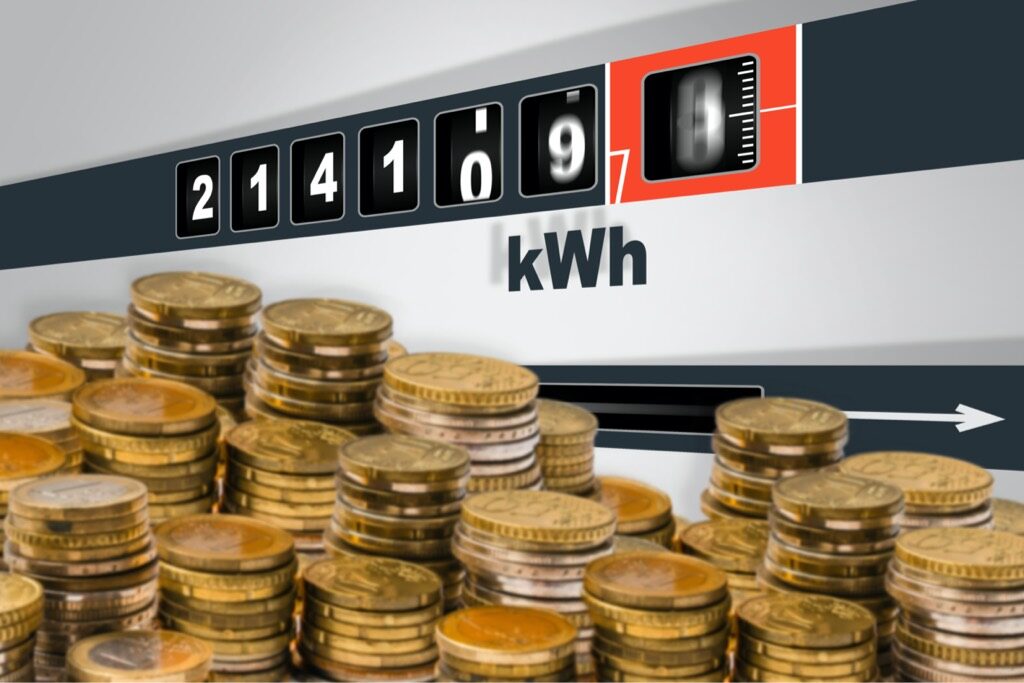Overview of a ground source heat pump
A ground source heat pump works by laying pipes underground, which harness the heat from the earth and transfer that heat into your home. This naturally requires a lot of work to install, from digging trenches for the pipework to installing the pump system in your home.
The total cost of a ground source heat pump system, including equipment and installation, ranges between £20,000 and £40,000. The large amount of variation here is because there are so many factors that the estimate depends on. This is both to do with your house, and the specification heat pump that you choose.
The factors affecting the cost of a ground source heat pump
Household energy usage
One of the largest factors affecting the cost of a ground source heat pump is how large the pump system needs to be. The larger the pump size, the larger the energy output of the system, and the higher the price of purchase and installation.
Households which are larger, with more people and higher energy needs, will need a larger pump and more extensive pipework outside the house than a smaller house with fewer residents. This will push up the price of the installation and the running of the pump system.
The heat retention of your house also makes a big difference; having a well-insulated home will reduce the amount of energy needed to keep the home warm, as less heat will need to be replaced as it leaves the house more slowly. This again means that you can scale down the whole pump system.
The structure of your house
As well as improving the insulation of your house, you may also need to consider upgrading your radiators to make them more compatible with your ground source heat pump. This is most likely in older properties which have smaller radiators; newer houses tend to have radiators which are larger than needed for a gas boiler. Experts estimate that only one third of UK properties will require an upgrade to their radiators.
The efficiency of your heat pump will also depend on the soil type which the house is built upon. If the thermal conductivity of the ground at your property is particularly high then you will see higher energy efficiency, which may reduce the size of the pump required.
The specification of your ground source heat pump
Just as there are many different ways that one house differs from another, there are many different specifications of heat pumps too. All of these will affect the cost of installing and running your system.
The installation of a ground source heat pump system is necessarily a large project. The pipework requires extensive digging of trenches or tunnels, and that’s before the equipment itself is installed.
Figures from the Department of Energy and Climate change report that of the total price of ground source heat pump installation, just under half of the price is attributed to equipment costs. The other 51% are non-equipment costs such as groundwork, administration and project management.
The cost of installing your heat pump
Those same figures from the Department of Energy and Climate change tell us that 60% of the money spent on non-equipment costs when installing a ground source heat pump are attributed to drilling and groundwork. So, what is that money spent on?
Piping systems: horizontal vs vertical
By far the largest factor influencing the cost of the groundwork is whether your pipework system is horizontal or vertical. In a horizontal system, you lay the pipes in a shallow trench, around 1-2m deep, taking up a larger amount of space; this system requires at least half an acre of land attached to the property. With vertical systems your installer will instead drill a vertical borehole between 50m and 150m deep. This requires far less space but is much more expensive to excavate – especially if multiple shallow boreholes are required due to geological conditions, rather than one deeper one.
These approximate figures from Greenmatch give an estimate of the average groundwork and installation costs for horizontal and vertical ground source heat pump systems.
| Number of bedrooms | Heat pump and installation costs | Horizontal groundwork cost | Vertical groundwork cost |
| 2 | £16,000 | £3,000 | £6,000 |
| 4 | £21,000 | £5,000 | £13,000 |
| 6 | £32,000 | £8,000 | £20,000 |
| 7+ | £42,000 | £12,000 | £30,000 |
Will installation costs drop?
Considering the recent increase in cost of many trade supplies and labour, some are wondering whether to postpone their project until prices go down. But will they?
If it’s a vertical ground source heat pump system you’re after, then the installation costs are not likely to decrease. The highly specialised process involved in drilling a borehole is not going to change. This is mainly where the costs lie.
However, the installation of a horizontal system does not require nearly as much expertise or specialised equipment. As more workers are trained to install them, the costs of doing so will drop. The timescale of this is uncertain, however, so there are no definite projections for when a price drop may happen. Some homeowners have undertaken the trench digging work themselves to save on labour costs. But the installation of heat pump pipework is not a small-scale back garden digging project. We would recommend asking a professional trader to do this for you.
The cost of the ground source heat pump itself
We’ve considered the costs associated with installation. But how much does the equipment itself cost? As with all financial estimates, prices will vary according to location and suppliers available. We hope to give you a good idea of what the equipment costs may entail.
The size of your heat pump system is one of the main factors contributing the overall price of the equipment as well as the installation. However, when we consider equipment cost, the relationship between the two may seem somewhat counterintuitive. The relative price of equipment per kW of energy produced is actually higher for a smaller system than for a larger one.
Regardless of the amount of eternal pipework installed outside the house, the equipment making up the pump system inside your home (the heat exchange plates, sensors, and transducers) are largely the same no matter how large-scale the heating system is. This means that per kW of energy produced to heat your home, the cost of ground source heat pump equipment is relatively higher for a smaller property than for a larger property.
The running costs of a ground source heat pump

One of the most appealing things about a heat pump system is its kindness to the environment. Using renewable underground heat not only conserves the earth’s finite resources but also means that you reduce your monthly energy bill.
Why they are so low
Running a ground source heat pump system is not 100% carbon-free. The pump equipment used to harness the renewable heat from the ground is powered by electricity. But the high efficiency of a heat pump means that the same amount of electricity can produce 2-4 times more heat than it would if it were used to heat your house using a traditional boiler system.
We have put some estimates together for an average home. A gas boiler would cost around £1,250 per year to run. The annual running cost for a ground source heat pump in the same property would be between £860 and £1,100 per year.
This difference is due to the better efficiency of a ground source heat pump at heating your home. You can also run your heat pump system even more efficiently by controlling it in the same way as your current heating system. You can set the thermostat temperature lower to save energy and money. The electricity being used to power your heat pump is being used much more effectively than it would be in a traditional heating system. This is reassuring to know in a cost of living crisis.
What do running costs depend on?
You need to take a number of factors into account to calculate the potential running costs of a ground source heat pump at your property. These include:
- Your household energy usage – depending on the factors outlined earlier in this article
- Whether or not your heat pump will supply domestic hot water as well as central heating
- The temperature and conductivity of the underground heat source – this can vary depending on the geological conditions at your location
- The heat retention of your house – this depends on how well-insulated it is
- How well heat is distributed in your home; underfloor heating is often more effective than radiators for this.
Government grants
The UK Government are encouraging homeowners to convert their current heating systems to eco-friendlier alternatives by introducing a number of grants which help to ease the initial financial investment of installing a heat pump. For more detail on these, read our complete guide to grants for heat pumps – but here are the headlines:
The boiler upgrade scheme
From April 2022, the UK Government are offering up to £6000 towards the cost of converting your current heating system to a heat pump as part of the £450 million Boiler Upgrade Scheme. Fine a full description of the scheme, as well as criteria for eligibility, on the UK Government website.
The Energy Company Obligation
The Energy Company Obligation challenges medium and larger-scale energy companies to reduce carbon emissions. They do this by subsidising the cost of improvements to houses which increase their efficiency. This can include financial help towards improving the insulation of your home. It can also include converting your heating system to something more efficient such as a heat pump.
The Ofgem website provides information on the Energy Company Obligation and who is eligible for it here.
VAT reductions
It may be possible for homeowners to receive a reduction in the VAT on their heat pump. If you receive income or disability benefits from the Government, or are aged over 60, you could receive a 5% reduction in tax on the entire project, or on the installation alone. To read more about this, head to the Government website.
Schemes in Scotland and Wales
Homeowners in Scotland may be eligible for the interest-free Home Energy Scotland Loan. They may also be elighable for the Warmer Homes Scotland programme. Both of these help homeowners towards heating their homes.
Those in Wales should investigate the Nest scheme and the Arbed am Byth Scheme (Warm Homes Scheme). These offer help towards home energy improvements.

